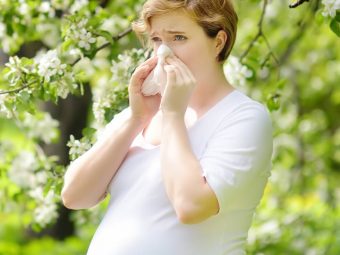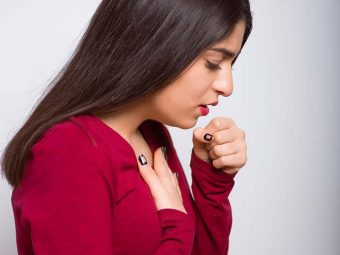6 Home Remedies To Remove Dark Spots On Face | Causes & Types
Get rid of those stubborn spots and marks on your face with simple ingredients.

If you are craving smooth skin with an even skin tone, you are probably also wondering how to get rid of dark spots.
Sometimes the pigmentation occurs in dark patches on the face and neck or appears on the body in other instances. There are many causes behind this issue, but if you are always out in the sun for whatever reason, these patches can appear or get flared up quickly.
The following write-up includes the causes, types, and treatments for dark spots and hyperpigmentation. Keep scrolling for more information!
In This Article
What Causes Dark Spots On The Face?
Dark spots or hyperpigmentation occurs due to excess melanin production in certain areas of your skin. Melanin is a pigment produced by your body that gives your hair, eyes, and skin color.
Factors that may contribute to dark spots include:
- Exposure to peak sunlight every day can cause the appearance of dark spots on your skin (1). This is because it increases the production of melanin on the surface of your skin.
- Hormonal imbalances can also cause hyperpigmentation (2). This, in turn, can lead to the appearance of dark spots on your skin.
- Certain medications like nonsteroidal anti-inflammatory drugs (NSAIDs), psychotropic drugs, or tetracyclines can lead to increased melanin production (3). This can result in dark spots.
Dark spots can be classified into different types, depending on how they are caused.
Types Of Dark Spots
- Melasma – It is caused by hormonal fluctuations and is more prominent during pregnancy or menopause (4).
- Lentigines – They are caused by excess sun exposure and are more common in old age (over 60 years) (5).
- Post-inflammatory hyperpigmentation – It is caused by skin conditions like acne, burns, etc. (6).
Sometimes, acne can also cause spots on your skin. These spots are usually formed when sebum gets oxidized, and they do not indicate skin damage. Wondering how to get rid of dark spots on face? We have you covered.
Dark spots can take a while to fade or disappear, and, in some cases, you may have to consult your dermatologist. Here are a few natural remedies to lighten dark spots.
Natural Ways To Lighten Dark Spots
1. Lemon Juice
Lemons are rich sources of flavonoids and other antioxidants, which may help lighten the dark spots on your face (7).
What To Do: You will need a teaspoon of lemon juice, water, and cotton swabs. Mix the lemon juice and water. Dip a cotton swab in the solution and apply it to the affected areas. Leave it on for 20-30 minutes. Rinse with water. You may do this once daily.
Note: Lemon juice can cause a stinging sensation on some skin types. If you are allergic to lemon juice, you must avoid this remedy. If you use this remedy, ensure you apply sunscreen before heading out.
2. Parsley
Parsley exhibits skin-lightening properties as it is rich in vitamin C. This may help treat dark spots and other similar conditions, including epidermal melasma (8).
What To Do: You will need 1-2 tablespoons of parsley leaves and sterile cotton pads. Blend the parsley leaves in a blender. Apply the mixture to the entire face. Leave it on for 20-30 minutes and rinse with water. Do this once daily or every alternate day.
3. Aloe Vera
Aloe vera contains aloin, a compound with melanocytic effects that can help depigment dark spots (9).
What To Do: You will need aloe vera gel and cotton pads. Extract the gel from an aloe vera leaf. Whisk the gel using a fork. Dip a cotton swab into the whisked gel and apply it to the affected areas. Leave it on for 20-30 minutes before rinsing. You may do this once daily for best results.
4. Orange Peel
Orange peel contains hesperidin, a potent flavonoid, which has skin-lightening effects. This may help eliminate the dark spots on your skin (10).
What To Do: You will need half a teaspoon of dried orange peel powder, water, and a cotton pad. Mix a few drops of water with the dried orange peel powder. Apply the mixture to the affected areas using a cotton swab. Leave it on for 20-30 minutes and rinse with water. You may do this once daily.
5. Turmeric
Turmeric contains curcumin, an antioxidant with anti-melanogenic effects (11). This may help lighten dark spots.
What To Do: You will need a teaspoon of turmeric, some water, and cotton pads. Mix the turmeric powder with a few drops of water to form a thick paste. Apply the mixture to the affected areas. Leave it on for 20-30 minutes. Rinse with water. You may do this once daily.
Note: Some people may develop an allergic reaction to turmeric paste. If you are allergic to turmeric, you must avoid this remedy.
6. Cucumber
Cucumber is a rich source of antioxidants and silica-rich compounds that possess skin-lightening properties (12). This may help minimize the appearance of dark spots.
What To Do: Take a fresh cucumber and blend it. Apply this paste on the areas with dark spots. Leave it on for 20-30 minutes and rinse with water. You may do this 1-2 times daily.
Use any or a combination of these remedies to lighten stubborn dark spots. The dark spots treatment with home remedies may not always show the desired results. If you are dealing with a severe case of hyperpigmentation (or dark spots), you need to consult a dermatologist.
How Does A Dermatologist Treat Dark Spots?
The common dermatologist treatment for dark spots on face include:
- Laser therapy, which uses laser rays to target melanin deposition and fade dark spots (13).
- Chemical peels, which involve the application of a chemical solution to the skin to exfoliate the surface layer, thereby helping lighten the dark spots (14).
- Microdermabrasion, which removes the outermost layer of the skin using a special device to promote collagen growth and reduce dark spots (15).
Now that you know how to get rid of dark spots on skin, it is best to know how to prevent them from appearing again.
Prevention Tips
- Always wear sunscreen with SPF 40 or above before stepping out in the sun. Reapply every four hours in case of continued sun exposure.
- Wear sunglasses or a wide-brimmed hat to protect your face from the harmful sun rays.
- Treat inflammatory skin conditions like acne, eczema, or psoriasis immediately to prevent the development of dark spots on the skin.
- Avoid going out between 10 AM and 4 PM, when the sun rays are the most intense.
These tips can complement the remedies and give you better results.
Sun exposure, certain medications, or hormonal imbalances may lead to hyperpigmentation or dark spots on different patches on the face. There are three main types of dark spots, namely, melasma, post-inflammatory hyperpigmentation, and lentigines. To get rid of dark spots, you can apply home remedies involving the use of lemon juice, parsley, aloe vera, orange peel, turmeric, or cucumber. Other treatment options include laser therapy, microdermabrasion, and chemical peeling. To prevent dark spots, use sunscreen with a minimum SPF value of 40, protect your face by wearing sunglasses or wide-brimmed hats, and treat acne immediately.
Frequently Asked Questions
Which is the best cream to treat facial dark spots?
Most over-the-counter formulations containing retinol and alpha hydroxy acids work well to treat dark spots. But they might also cause adverse effects, including increased sensitivity and skin inflammation. Hence, you need to consult a dermatologist.
How long do the dark spots take to fade?
While dark spots caused by acne or skin injury may fade within a couple of weeks, those caused by an underlying skin condition can take anywhere between six months to over a year to fade completely.
Sources
- Skin Hyperpigmentation in Indian Population: Insights and Best Practice, Indian Journal of Dermatology, US National Library Of Medicine, National Institutes of Health.
https://www.ncbi.nlm.nih.gov/pmc/articles/PMC5029232/ - Melasma: a clinical and epidemiological review, Anais Brasileiros De Dermatologia., US National Library Of Medicine, National Institutes of Health.
https://www.ncbi.nlm.nih.gov/pmc/articles/PMC4155956/ - Drug Induced Pigmentation, StatPearls, US National Library Of Medicine, National Institutes of Health.
https://www.ncbi.nlm.nih.gov/pmc/articles/PMC3131604/ - Melasma: an Up-to-Date Comprehensive Review, Dermatology and Therapy, US National Library Of Medicine, National Institutes of Health.
https://www.ncbi.nlm.nih.gov/pmc/articles/PMC5574745/ - Sun-induced freckling: ephelides and solar lentigines. Pigment Cell and Melanoma Research, US National Library Of Medicine, National Institutes of Health.
https://www.ncbi.nlm.nih.gov/pubmed/24517859 - Postinflammatory Hyperpigmentation A Review of the Epidemiology, Clinical Features, and Treatment Options in Skin of Color, The Journal of Clinical and Aesthetic Dermatology, US National Library Of Medicine, National Institutes of Health.
https://www.ncbi.nlm.nih.gov/pmc/articles/PMC2921758/ - Citrus Flavonoids with Skin Lightening Effects – Safety and Efficacy Studies, SOFW Journal, ResearchGate.
https://www.researchgate.net/publication/281436622_Citrus_Flavonoids_with_Skin_Lightening_Effects_-_Safety_and_Efficacy_Studies - The Effect of Topical Use of Petroselinum Crispum (Parsley) Versus That of Hydroquinone Cream on Reduction of Epidermal Melasma: A Randomized Clinical Trial. Holistic Nursing Practice, Semantic Scholar.
https://www.semanticscholar.org/paper/The-Effect-of-Topical-Use-of-Petroselinum-Crispum-A-Khosravan-Alami/b5686d623cb1ecfbcef91f7afadc74b9e9f4d9f0 - On the novel action of melanolysis by a leaf extract of Aloe vera and its active ingredient aloin, potent skin depigmenting agents. Planta Medica, US National Library Of Medicine, National Institutes of Health.
https://www.ncbi.nlm.nih.gov/m/pubmed/22495441/ - Hesperidin Suppresses Melanosome Transport by Blocking the Interaction of Rab27A-Melanophilin, Biomolecules And Therapeutics, US National Library Of Medicine, National Institutes of Health.
https://www.ncbi.nlm.nih.gov/pmc/articles/PMC3825197/ - Curcumin inhibits melanogenesis in human melanocytes. Phytotherapy Research, US National Library Of Medicine, National Institutes of Health.
https://www.ncbi.nlm.nih.gov/m/pubmed/21584871/ - Invigorating Efficacy of Cucumis Sativas for Healthcare & Radiance, International Journal of Chemistry and Pharmaceutical Sciences, Pharma Research Library.
http://www.pharmaresearchlibrary.com/wp-content/uploads/2014/04/IJCPS2001.pdf - A review of laser and light therapy in melasma, International Journal of Women’s Dermatology, US National Library Of Medicine, National Institutes of Health.
https://www.ncbi.nlm.nih.gov/pmc/articles/PMC5418955/ - Chemical Peels for Melasma in Dark-Skinned Patients, Journal of Cutaneous and Aesthetic Surgery, US National Library Of Medicine, National Institutes of Health.
https://www.ncbi.nlm.nih.gov/pmc/articles/PMC3560164/ - Microdermabrasion: a clinical, histometric, and histopathologic study. Journal of Cosmetic Dermatology, US National Library Of Medicine, National Institutes of Health.
https://www.ncbi.nlm.nih.gov/pubmed/27357600












